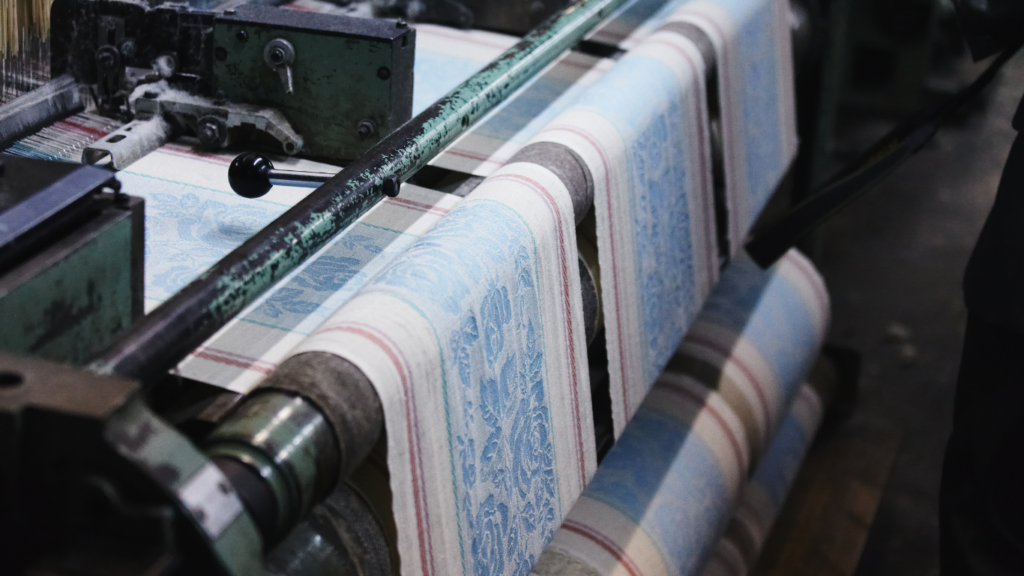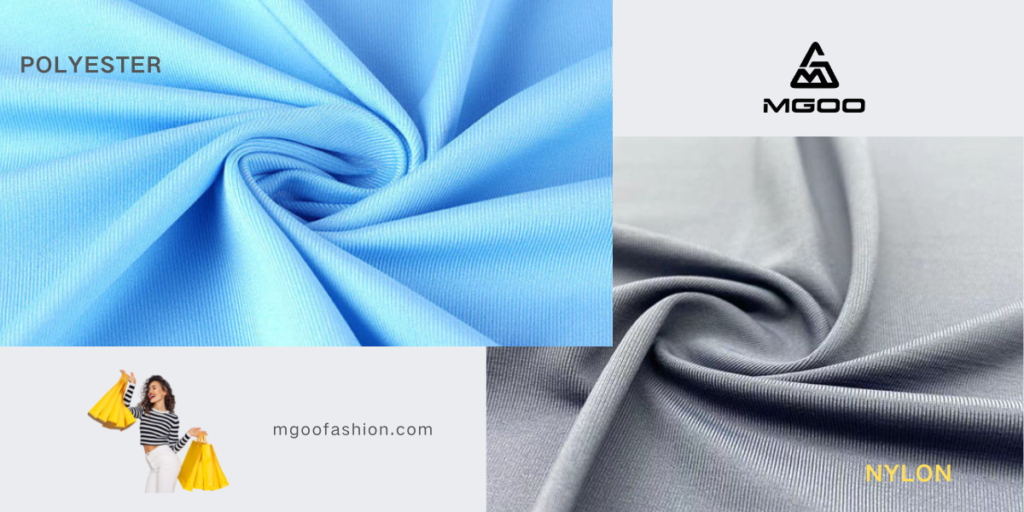Polyester and nylon are both synthetic fabrics made from artificial fibers. They share many of the same qualities, such as being very durable and stronger than natural fibers. However, there are a few key differences between them. Polyester is more heat-resistant than nylon, which can withstand higher temperatures without melting or burning. It is also less resistant to post-finishing processes that enhance function, like coating or printing, while nylon is more resistant to those treatments.

Nylon and Polyester are both synthetic materials made from oil. Nylon is a synthetic solution spun from a liquid thermoplastic polymer, and polyester is a family of synthetic materials that includes many kinds of fibers. While the fabric construction is based on a long-chain polymer electrolyte, its chemical make-up varies depending on the type of polymer and how it is used. Polyester production dates back to 1854, when the Danish developed it. They are strong, resistant to wrinkles, and hold their shape well.
However, nylon is more robust than polyester and can withstand more wear and tear. Polyester is less expensive than nylon, but it does not hold its shape as well as nylon. Polyester may be more comfortable to the touch because it’s softer than nylon, but it can’t hold up to repeated washings like nylon can.
Nylon and Polyester are both synthetic fabrics, which means they are made from chemicals. Nylon is made from nylon 6,6, a combination of two chemicals: hexamethylene diamine and adipic acid. Polyester is made from petrochemicals, which are chemicals derived from petroleum. Both fabrics are durable and can be dyed in many colors, but they will eventually fade with exposure to sunlight or water. Polyester may be more comfortable to the touch because it’s softer than nylon, but it can’t hold up to repeated washings like nylon can.
Polyester is stronger than nylon.
Polyester is stronger than nylon because it is a more stable material. Nylon can break down over time, while Polyester will hold its shape and be less likely to pill. Polyester also dries faster than nylon, making it a better choice for activewear. However, nylon is abrasion-resistant and can withstand more wear and tear than Polyester.
Nylon fabrics are made from nylon6,6, a long-chain molecule of carbon atoms. The fabric is strong and resilient; however, it does not resist water or stains as well as Polyester does. Polyester has a higher tensile strength than nylon and can be more durable, but it’s not as resistant to water or stains. Nylon can be more breathable, but its resistance to water and stains is inferior to Polyester.
Polyester is softer than nylon.
There are several key differences between nylon and polyester fabrics. Nylon is stronger than Polyester, but Polyester dries faster and is less likely to pill. Polyester also dyes more easily than nylon. Both materials are abrasion-resistant, meaning they can withstand a great deal of wear and tear.
There are several key differences between Polyester and nylon. Polyester is less likely to pill, dries faster, and dyes more easily. Nylon is stronger and softer than Polyester. It also has a wicking finish that can quickly remove moisture and dry.

Nylon is less costly than polyester.
Nylon is less costly than polyester because it is a synthetic fiber made from oil and natural gas, while Polyester is a synthetic fiber made from coal and petroleum. Nylon is also less costly because it does not absorb water quickly, whereas polyester absorbs water quickly, making it more challenging to dry.
Nylon is less costly than polyester because it does not have elasticity. Polyester is made of synthetic fibers, while nylon is made of natural fibers. Nylon also melts when it goes to flames, while polyester melts and burns simultaneously. Lastly, polyester is more moisture resistant and water-repelling than nylon.
What is MOQ
MOQ is “minimum order quantity”. It means the minimum quantity of items a manufacturer will receive for making an order.
For example, if a clothing manufacturer provides an MOQ of 100 pieces per style, then you would need to order at least 100 pieces of a particular style to meet a supplier’s MOQ requirements for the one-time production run. Almost all suppliers set an MOQ of some kind. Each supplier’s quantities will differ widely based on their type of production factory, manufacturing, and where they are located.
Low moq clothing manufacturer China

Low moq clothing manufacturers are necessary for high-volume production. When a company needs to produce a large quantity of clothing, it is difficult and often expensive to find a manufacturer that will produce a small quantity. Low moq clothing manufacturer China offers low-cost, high-quality clothes. Because these manufacturers have lower minimum order quantities, they can produce clothes at a lower cost than many other factories.
In addition, the quality of the clothes is often excellent. This is because the manufacturers use various production methods to keep costs down. Some low moq clothing manufacturers in China use factories with poor working conditions and unsafe practices. While this does bring down the overall cost of manufacturing, it can be dangerous for the workers and lead to poor-quality products.
small moq clothing manufacturers
China does not have the same issues. They are more likely to use factories that produce high-quality products and treat their workers well. These manufacturers usually pay higher wages, which helps keep the quality of the products high.
Nylon and Polyester both have their benefits. Nylon has a delicate tactile feel, while Polyester emerges with abrasion resistance and fewer wrinkles. Considering some key aspects, like price, weight, and durability in textile manufacturing, it is easy to see which fabric is the best. Nylon prices are higher than Polyester’s, but it can withstand wear-and-tear better. Polyester is cheaper, but it wrinkles easily and may not be as durable as nylon.
Custom clothing line manufacturer
A custom clothing line manufacturer creates clothing specifically for your brand, which gives you more control over the clothing’s design, fit, and feels. It is essential to find a manufacturer that understands your vision and can create clothing that meets your high standards. Nylon and Polyester are synthetic fabrics used to make clothes. Polyester is stronger, dries quicker, and costs less than nylon. You will pay less for Polyester than you will for nylon clothing.
Conclusion
Nylon is stronger, dries quicker, and costs more than Polyester. You will pay more for nylon clothing than you will for polyester clothing. Polyester is cheaper, but it wrinkles easily and is not as durable as nylon. Choose the type of fabric that works best for your clothing line and meets your budget needs.

